First CIA Culinary-Science Graduates Enter the Food World
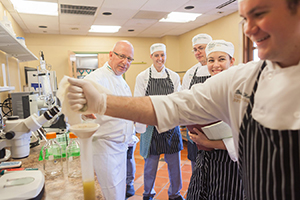 Since graduating in May, alums have already earned esteemed jobs, including at the “world’s best restaurant,” located in Denmark, and the world’s largest privately owned flavor and fragrance developer in Switzerland.
Since graduating in May, alums have already earned esteemed jobs, including at the “world’s best restaurant,” located in Denmark, and the world’s largest privately owned flavor and fragrance developer in Switzerland.
Ushering in a new era of advanced techniques and innovation for chefs, the first group of students to graduate with bachelor’s degrees in culinary science from The Culinary Institute of America (CIA) received their diplomas in May. The students entered the program in February 2013 after earning their associate degrees in culinary artsor baking and pastry artsat the college.
“The culinary science majoroffers a unique perspective into the world of food,” says new graduate Kristin McGinn from Hackettstown, N.J.,who accepted an internship with McCormick & Company. “The program uses a dual teaching style with both a scientist and chef in each class. Because of this, we learned the in-depth science behind food while getting lessons on how to create and balance flavors at the same time.”

 While beginning a professional journal can be rewarding on several levels, maintaining a journal requires commitment. Here, Dr. Mayo offers tips and ideas for making the process of recording more valuable over time, as well as less taxing.
While beginning a professional journal can be rewarding on several levels, maintaining a journal requires commitment. Here, Dr. Mayo offers tips and ideas for making the process of recording more valuable over time, as well as less taxing. Chef Weiner lists his first 50 articles written for CAFÉ’s “The Gold Medal Classroom,” for the benefit of readers.
Chef Weiner lists his first 50 articles written for CAFÉ’s “The Gold Medal Classroom,” for the benefit of readers.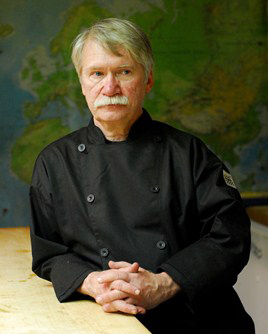 In curriculum development, although enrollment-management departments like to promote courses that concentrate on attractive ancillary skill sets, insufficient dedication to teaching strong foundational abilities will negatively impact student employability and success.
In curriculum development, although enrollment-management departments like to promote courses that concentrate on attractive ancillary skill sets, insufficient dedication to teaching strong foundational abilities will negatively impact student employability and success.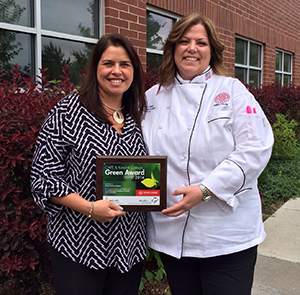 A collegiate culinary-arts program in South Florida earns top honors for exemplary practices in—and innovative teaching of—ecological sustainability.
A collegiate culinary-arts program in South Florida earns top honors for exemplary practices in—and innovative teaching of—ecological sustainability. The Culinary Institute of America introduces an online learning experience focusing on the “blendability” of mushrooms at
The Culinary Institute of America introduces an online learning experience focusing on the “blendability” of mushrooms at 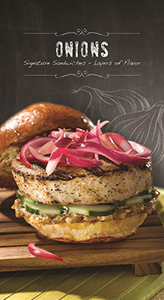 August is National Sandwich Month, and a new series of recipes from the National Onion Association features signature sandwiches with onions. Onions are the most frequently listed vegetables on menus, and one of the most popular uses is on sandwiches.
August is National Sandwich Month, and a new series of recipes from the National Onion Association features signature sandwiches with onions. Onions are the most frequently listed vegetables on menus, and one of the most popular uses is on sandwiches.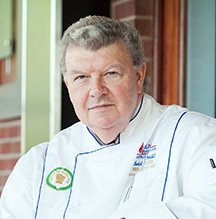 After nearly 12 years with Sullivan University, Chef David Dodd has been named executive director of the National Center for Hospitality Studies (NCHS) at the Louisville-based culinary school. Previously director of NCHS, Dodd will now oversee all food and beverage operations at both Louisville and Lexington campuses as well as all aspects of NCHS including The Bakery at Sullivan University retail and wholesale operations, Juleps Catering and Winston’s Restaurant.
After nearly 12 years with Sullivan University, Chef David Dodd has been named executive director of the National Center for Hospitality Studies (NCHS) at the Louisville-based culinary school. Previously director of NCHS, Dodd will now oversee all food and beverage operations at both Louisville and Lexington campuses as well as all aspects of NCHS including The Bakery at Sullivan University retail and wholesale operations, Juleps Catering and Winston’s Restaurant.